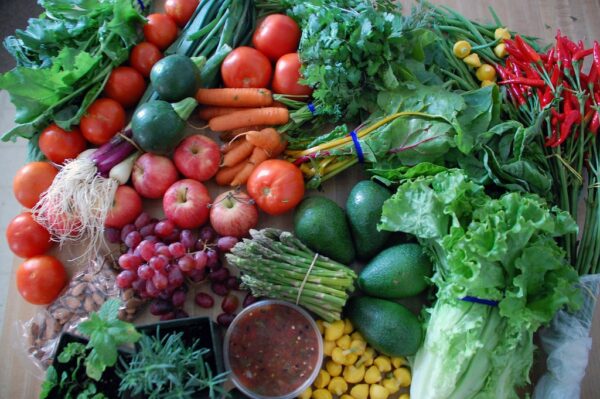During these challenging times, while most people are working from home, sanitation workers are still out in the field providing essential services such as garbage, recycling, and organics pick-up. All curbside collection services in Sonoma County continue to operate normally, although temporary routing changes may result in drivers arriving earlier or later than usual.
The following is a list of suggestions for residents to do their part to minimize disease transmission while maintaining a small waste footprint.

To Donate or Dispose?
Before you dispose of unneeded items, consider whether they are fit for reuse. With businesses opening up, it’s possible that your local reuse or thrift store may be accepting donations again. Before you bring your donations, call ahead to be sure the store will accept the goods and quantities you would like to drop off, as staffing and the capacity to process items could be limited.
Platforms like Facebook Marketplace, NextDoor, and Craigslist are good options for selling or giving away unwanted items. These shopping channels are also excellent places to find second-hand goods. Purchasing second-hand is an easy way to extend the life of goods and reduce your carbon footprint.
Please remember that batteries, paint, fluorescent lightbulbs, medication, motor oil, and other household hazardous waste (HHW) products require special treatment and are illegal to discard in the garbage. For more information, visit our website to learn how and where to properly dispose of these and other materials.
Residents may request an oil filter drainer and oil rag to be delivered to their doorstep by calling the Eco-Desk at (707) 565-3375. In addition, curbside oil pick-up remains available through all waste haulers.
(You Can Still) Avoid Single-Use Items
Sonoma County and many other cities throughout California have longstanding bans on single-use plastic bags, but some local governments have suspended these bans as a precaution against COVID-19.
As of June 18, 2020, you may use reusable bags in Sonoma County. Stores are now allowed to accept reusable bags as long as the customer bags his or her own purchases. If you visit a store that hasn't yet transitioned back to allowing reusable bags, you can still use reusable bags. Just leave them in your vehicle, or if you don’t drive to the store, keep them in a backpack or handbag, and ask the bagger to place groceries directly into the cart at checkout. When you exit the store, transfer items from the cart into your bags. As an extra precaution, wash your bags between uses.
Similarly, if you decide to order food and beverages for pickup or delivery, remember to refuse single-use utensils, straws, and condiments and use what you have at home instead.
Wear a Reusable Mask
To slow the transmission of the virus, it is important that we all wear masks that cover our noses and mouths when in public places, or when we are within 6 feet of those not living in the same household. Over the past few months, more and more single use masks and latex gloves have been ending up as litter, which eventually make their way into our rivers and to the ocean. We’ve all seen the horrifying images of marine life plagued by straws and plastic bags. By opting to make or purchase a reusable mask instead of a single-use alternative, you will not contribute to the growing waste stream of landfilled PPE or be the cause of discarded PPE devastating the life of an animal.
Prepare Your Produce
It is important, now more than ever, that we thoroughly wash our hands with soap and water before handling any food. Remember to also rinse fresh fruits and veggies before eating them, but do not use soap to wash produce as it can cause stomachaches. As usual, dispose of all stickers in the trash before placing food scraps into the green cart for composting.
If you have issues with odor or pests, keep your food scraps loose in a container in the fridge or freezer. On collection day, transfer them to your green curbside cart. Remove excess liquids and reduce odor by lining the bottom of the collection container with a paper egg carton.
Continue to Recycle Right
Studies suggest that it’s possible for the virus to live on plastic for two to three days, and cardboard for up to 24 hours. Despite a low transmission risk through contact with recyclables, wash your hands before and after rolling out the curbside cart, and wipe down cart lids and handles with disinfectant regularly.
The virus is primarily transmitted through droplets from coughing or sneezing. This means that on the small chance the virus is present on a can or bottle, it will not fly into the air by itself. To reduce risk even further, follow the same guidelines for preparing recyclables by giving them a rinse and allowing them to drain and dry before sorting or placing them in your cart. Remember to flatten cardboard, keep lids on containers, and do not place “tanglers” such as plastic bags/film, hoses, or string lights into the recycling cart, because they tangle machinery at the sorting facilities.
Tightly Bag Your Trash
When reusable PPE is unavailable, waste such as used masks, gloves, tissues, and disinfectant wipes should always go into the garbage. Make sure to tightly tie them up in garbage bags. These items are light and can be carried away by the wind, or end up in the streets and waterways. On the other hand, do not bag recyclables or your food scraps. Keep them loose in the cart with the lid closed.
For more information on recycling, composting, and disposal, visit www.zerowastesonoma.gov. The most up to date list of Zero Waste Sonoma program changes and event cancellations due to COVID-19 can be found on https://zerowastesonoma.gov/covid-19.